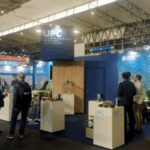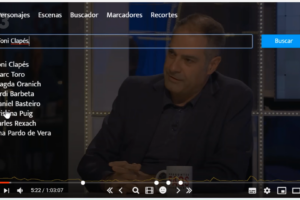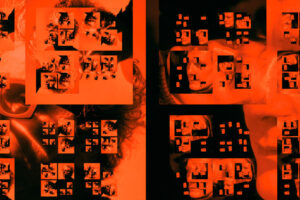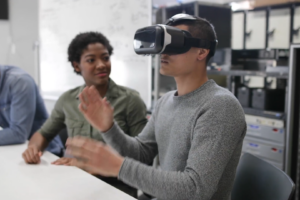
The UPC Institute for Research and Innovation in Health, IRIS, is launched
June 6, 2025
The UPC showcases urban innovation at the Smart City Expo World Congress and the Barcelona Deep Tech Summit
November 6, 2025
The UPC Institute for Research and Innovation in Health, IRIS, is launched
June 6, 2025
The UPC showcases urban innovation at the Smart City Expo World Congress and the Barcelona Deep Tech Summit
November 6, 202506/10/2025
Once again, the Universitat Politècnica de Catalunya - BarcelonaTech (UPC), through the UPC Technology Center (CIT UPC), will take part in the Smart City Expo World Congress, the world’s leading event on cities and smart urban solutions, which will bring together the global urban innovation community from 4 to 6 November at the Fira de Barcelona Gran Via venue.

This year, the UPC will once again have its own stand, and will showcase pioneering projects and technological capabilities in areas such as enabling technologies (digital twins, data, blockchain), energy and the environment, sustainable urban mobility, governance and the digital economy, life and inclusion, smart infrastructure and building, and the blue economy.
Location: Hall P3, Level 0, Street E, Stand 60. Fira de Barcelona - Gran Via
More information: smartcity.upc.edu
#UPCtechnology #SCEWC25
Related Projects
- The AgroTech research group at the Universitat Politècnica de Catalunya – BarcelonaTech (UPC), together with its spin-off Ugiat Technologies, have driven DoblAI, an AI platform that integrates transcription, translation, subtitling and video dubbing into a single workflow. The solution, which uses deep learning technology and cloned or default voice models, is specifically designed for the journalism and communications sector.
- The AgroTech research group at UPC, in collaboration with its spin-off Ugiat Technologies, has developed uPlayer, a new multimedia player concept that enables more intuitive video navigation and viewing, intelligently enhancing the user experience, especially on YouTube and other platforms, by integrating as a plugin or advanced player.
- The Image and Video Processing Group (GPI), part of the IDEAI-UPC research group, and the Digital Culture and Creative Technologies Research Group (DiCode) from the Image Processing and Multimedia Technology Center (CITM) at the Universitat Politècnica de Catalunya – BarcelonaTech (UPC), have co-organised the AI and Music Festival (S+T+ARTS) together with Sónar+D and Betevé, to explore the creative use of artificial intelligence in music.
- The Visualisation, Virtual Reality and Graphic Interaction Research Group (ViRVIG) at the Universitat Politècnica de Catalunya - BarcelonaTech (UPC) has participated in the XR4ED project, an initiative that connects the educational technology (EdTech) and Extended Reality (XR) sectors, with the aim of transforming learning and training across Europe.




